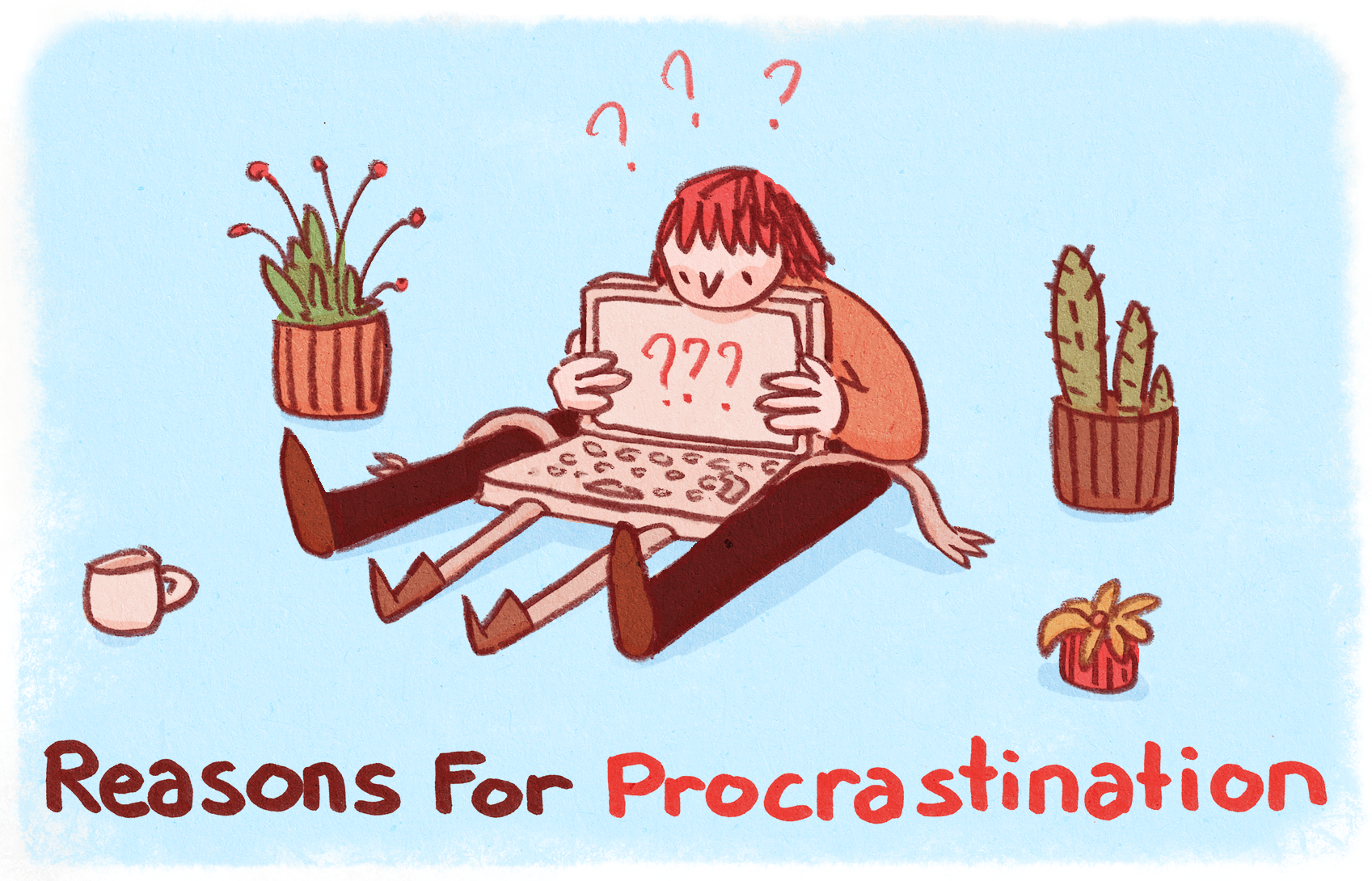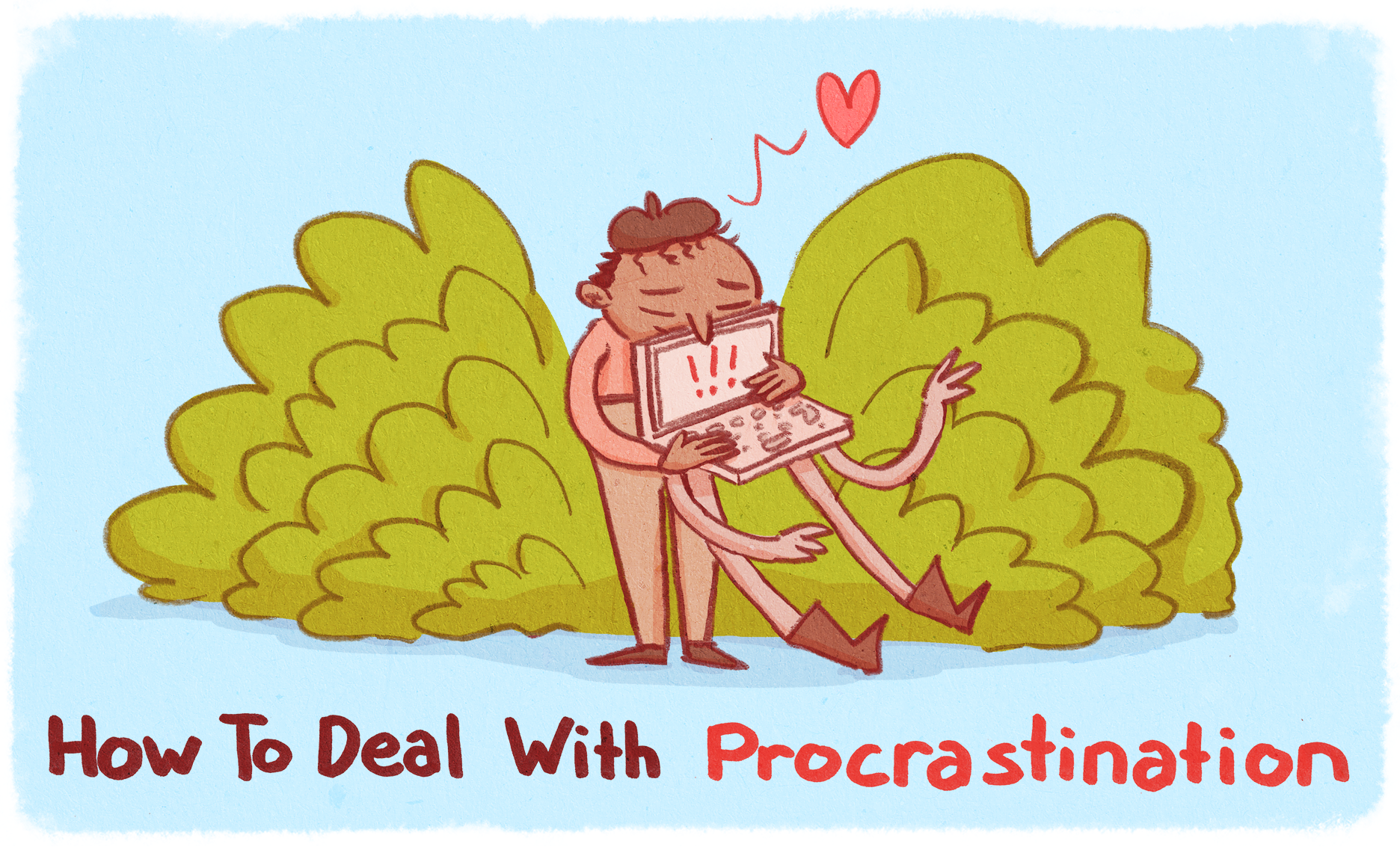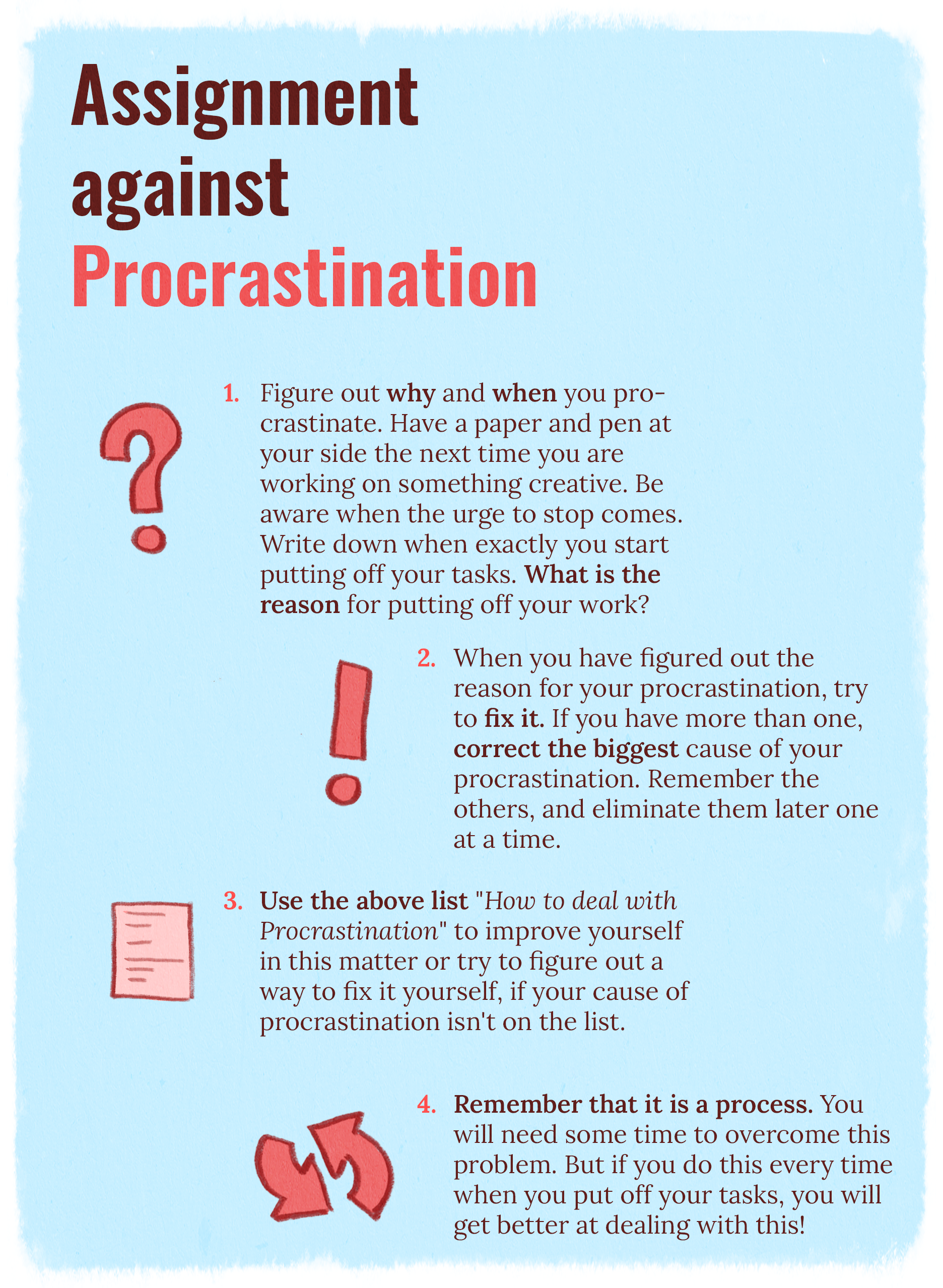Procrastination is a form of self-regulatory failure that a lot of artists and designers have. But you can improve this issue and get more productive with your creative work! This blog post gives you insight into a meta-analysis (a statistical analysis that combines the results of multiple scientific studies) with the answer to why you put off work and how you can deal with it. I give you an assignment on what you can do, to improve your problems with procrastination.

- You tend to favor tasks that are more pleasant in the short term. Consequently, you are more likely to procrastinate long term work.
- The more unpleasant a task is (or if you dislike it), the more likely you are to avoid doing it. You will procrastinate when it is too effortful or anxiety-producing.
- Procrastination decreases as the task is near completion or as a deadline approaches.
- Jobs you characterize by lower liberty, task significance, and feedback will likely increase procrastination.
- With frustration, resentment, and boredom comes procrastination.
- Fear of failure doesn’t help too. You are more likely to put off difficult and boring tasks when they expect to be evaluated.
- Low self-confidence is a cause of procrastination. You are more likely to give up on your efforts when encountering an obstacle.
- Depression can cause low energy levels which result in procrastination.
- Procrastinators tend to dislike structure or routine and typically will start with the more pleasurable tasks, while non-procrastinators prefer to sequence those last.
- If you tend to choose short-term benefits over long-term gains, you are more likely to put off your tasks.
- Availability of distractions is one of the top reasons contributing to procrastination.
- The more times a task requires a choice that you have to make, the more likely it is that you will procrastinate.

- One way of decreasing procrastination for a given task is to increase your expectancy of success. Develop self-efficacy!
- Tasks should be constructed to be challenging but still achievable. Break big tasks into tiny little tasks and try to do them one by one. Make them fun! Reflect on how a task could be more joyful for you. Maybe the fun part comes after the annoying task is done, try to focus on that.
- Surround yourself with cues that confirm your goals and banish any sign that reminds you of temptation.
- Stop distractions! For the time you are working, put your phone away. Use apps that will prevent you from procrastination. For my web browser, I use “StayFocusd”. I also use “DF Tube” for a distraction-free use of YouTube. Figure out what is the most distracting part of your day and stop it while you are creative.
- Try to make your tasks less of a choice. Use Habits. Work at the same time of the day. Start with a crafted routine and do it every time before you do your tasks.
- Make a list of long term benefits if you end the task successfully. Pin it somewhere where you see it every day. I have a corkboard in front of me at my place where I do creative work.
- Why is this task you are putting of right now significant in the whole picture? Try to remember why you do it.
- Use external pressure. Like a friend or just your social media followers.
- Internal pressure works too if you give yourself a deadline. But not everyone can achieve their deadlines.
- Try to get feedback for your work.
- If you have a lot of different tasks, do the most annoying task first. The fun part of the day will be at the end. It can function as a reward too!
- Frustration with your tasks or the fear of failure can have a huge impact. Mindfulness can help with that. I made a little comic about that but I will dive deeper into this topic with more posts later this year.
My Experience With Procrastination
When I draw a picture I have times where I want to procrastinate. It appears often at the same time in my process. Some days are tough and it is difficult to overcome this problem. Other days it is easier.
I like to draw and sketch ideas for the picture I want to make. It is the most fun part because I like doodling around. When I decided what I want to draw I start sketching it roughly. But every time I struggle when I need to clean the picture up with a better line drawing. When this happens I try to remember the benefits if I do not procrastinate on this task. Sometimes it is a self-made deadline I give myself (I draw every Monday one monster, so it needs to be done on a Monday). With Instagram, I give myself a bit of pressure. I think to myself, that all my followers want to see the monster (even if this is not true). One of the most fun parts for me is, when I can ink the drawing or when I can color it. This pushes me, to clean up my pencil sketch. And after a few minutes, when I started the cleanup, I come into a flow and finish the task with ease. This resistance is there, always. You just need to go through it every time and learn what works for you.

Source: Steel, P. (2007). The nature of procrastination: A meta-analytic and theoretical review of quintessential self-regulatory failure. Psychol Bull 133: 65-94. Psychological bulletin, 133, 65–94. https://doi.org/10.1037/0033-2909.133.1.65
This post was last updated on 2 September 2024